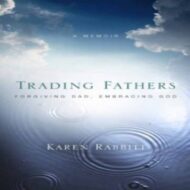We can choose forgiveness long before we feel forgiving. In fact, we will choose to cancel the debt before we feel like it. If we wait until we feel like it, we’ll never forgive.
Releasing the pursuit of revenge involves several factors. Identifying the sin, identifying and feeling our emotions, developing empathy for the sinner, canceling the debt, along with setting boundaries if there’s no reconciliation, or a slow rebuilding of trust if the hurtful person truly repents.
The process can take years if the sin is grievous. But if we want freedom, somewhere in the process, we decide to forgive. We say the words: “I forgive.” We forgive a person or an institution or a culture or ourselves. We even “forgive” God for what we perceive as injustice toward us or our people.
 To forgive sin that has altered the course of our lives requires the power of God’s Holy Spirit. We do not have in us the power to make peace with an altered life.
To forgive sin that has altered the course of our lives requires the power of God’s Holy Spirit. We do not have in us the power to make peace with an altered life.
Without sexual abuse from my father, I can imagine a life of trust, and hope, and faith from a young age. I can spin out scenarios in my mind’s eye of joy and productivity and meaning. By the Father’s power, though, forgiveness has reconfigured my journey, in spite of the abuse, to his peace and rest.
To forgive is to entrust ourselves to an eternal judge who judges righteously. (1 Peter 2:23)
To forgive is to believe God will bring his good from our pain. (Romans 8:28) Not enough to say it was worth it, necessarily, but enough to recognize the Father’s good hand.
To forgive is, by the power of the Holy Spirit, putting to death old hopes thereby clearing the ground for new hope.
Forgiveness grows from the belief that the coming kingdom of our Papa-God is worth all it costs us. (Romans 8:18)
By your power, Father, we forgive those who have altered the course of our lives.
